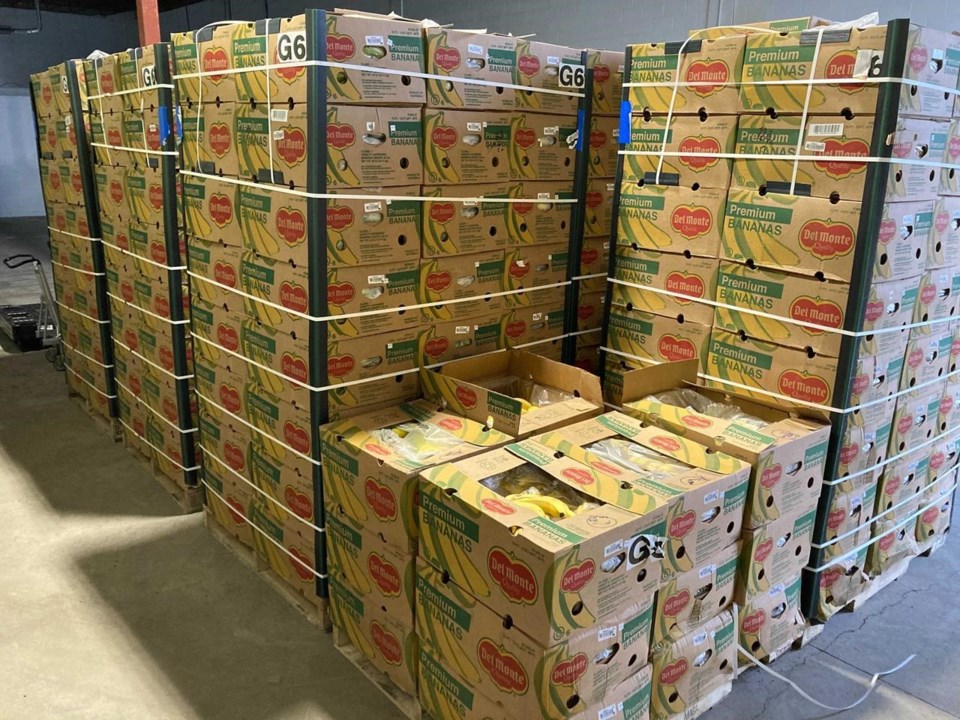CALGARY — It's been bananas at the Leftovers Foundation as the Calgary not-for-profit tries to find a use for thousands of bunches of the long, yellow fruit, which were donated all at once last week.
Interim CEO Audra Stevenson said a call came in last Friday from produce distributor Fresh Direct and it had more than seven pallets of bananas with nowhere to go.
That amounted to 346 cases, each with about 10 bunches in them.
"Our bread and butter is rescuing food that doesn't have a home and getting it into the hands of people who need it," Stevenson said Monday.
She said the priority is to get as many of the fresh bananas as possible to organizations that serve people in need, such as homeless shelters. As of Monday morning, there were about 150 cases left and a lineup of service agencies waiting to pick some up.
But by Tuesday, Stevenson said, it's likely there will be a pallet left of bananas that are past their prime, like ones that start to turn brown on your kitchen counter.
"You wouldn't give one to your kid, but you would make it into banana bread."
The Leftovers Foundation also has a program that brings large quantities of rescued produce to local food artisans that can upcycle it into tasty treats.
The groups' website says that in the past, Made by Marcus has made ice cream from bananas it procured through the program.
This time, Stevenson said Hoopla Donuts and restaurant Donna Mac are on standby to grab whatever is left once the service agencies get their fill.
She said the only other time she can recall having to off-load so much fresh food at once was when the COVID-19 pandemic forced the closure of the Southern Alberta Institute of Technology's culinary school last year. The foundation helped redirect some 4,500 kilograms of food within a day.
Stevenson said food ordering while avoiding waste is difficult at the best of times, and the pandemic has made it harder.
"It's really just a pretty unpredictable time all the way up through the food supply chain," she said.
"And so it's not only just fluctuating orders from restaurants as they adapt to restrictions. It goes up to distributors being able to predict who will be open, who will be accepting their food orders."
This report by The Canadian Press was first published March 1, 2021.
Lauren Krugel, The Canadian Press




